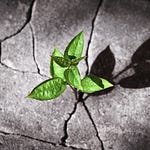[Audio Transcript] Hello, I'm Dheepa Maturi, and welcome to Pieces of Light.
My last note was about my holding back from jumping into the crowd and joining the dance. Ironically enough, I've always enjoyed dance performance. I learned the classical Indian art of Bharath Natyam from childhood onward, and it always felt like a profound connection to my heritage.
Once, during a graduate school interview, a dean asked whether I’d done anything unusual during the preceding summer. I shared that I’d trained for and presented a two-hour solo performance of Bharath Natyam. I’ll never forget his response, delivered with a frown: “Isn’t that just dancing for men?”
As the daughter of an immigrant family in the U.S. at that time, the distance between the dean’s perceptions and my own reality was a familiar one. Nevertheless, I sat stunned for a moment, thinking of my years spent mastering footwork, cultivating balance, and learning to convey emotions and expressions.
I thought of how honored I felt to have become a steward of thousand-year-old legends and philosophies. So, finding my voice, I explained this ancient storytelling tradition, as well as the athleticism, skill, and training it required. I described the sophistication of the concepts, and the layers of meaning it could convey—for example, the eternal cycles of creation and destruction, and the soul’s longing to merge with the divine.
As a poet, I generally write free verse, but an editor once encouraged me to try some "form poetry"—that is, to write within prescribed structures of syllables and rhyme—and she directed me to the Tweetspeak Poetry website to explore my options and instructions.
As I looked through the list, the word "ghazal" caught my attention because it's a form often used in Indian music.
I immediately wanted to try it, because it seemed like the perfect structure to write about my experience of Bharath Natyam. It's similarly strict with respect to form, but also possesses a dynamic platform from which to tell stories and communicate emotions.
I wondered if I could write a form poem about a form dance, so to speak.
But I found the requirements challenging. I had to rhyme not the last, but the second-to-last, words in various lines, and then conclude each stanza with the same word.
And the ghazal convention of the poet calling to herself at the end made me feel oddly vulnerable and awkward. Moving through that discomfort, though, I realized that that call actually did befit the form—because it was a call for me to remember who I am and to say what I truly want to say.
As I wrote, I thought back on my experience with the dean, remembering how desperately I wanted to make him understand. I think this poem, “The Ancient Dance,” was incubating within me since the day of that interview, and writing it helped me to resolve that interaction in my own heart.
It also allowed me to embrace a lesson it's been hard for me to internalize—that my work is not to convince. Rather, my work is to share, freely and courageously, what I know and how I see.
"The Ancient Dance"
I.
I received birth, grasped this world, and knew deeply that it is not enough to
view dance,
So I begged, teach me the eons past, I will receive that, too. Let me speak
through dance.
II.
Kings, sages, mendicants, and, yes, yes, goddesses, all told with my body,
mouth, hands,
I wait behind velvet, drawn in drunk by the chords and patterns and beats that
cue dance.
III.
As am I, so are you, profoundly yoked to what sweeps and thunders above,
around, within us,
You do not believe me, I see your face, I feel your doubt. I understand why so
few dance.
IV.
He asked what was different about me, and I tried to speak my pulses,
heartbeats, history,
He taunted, he jeered, ah, I know, I see, this is for men, this is what you do to
woo, dance.
V.
Dheepa, it is no matter! You know this is passage between yourself and
throbbing creation,
It is more than show, more than story, more than a human being on a stage,
true dance.
"The Ancient Dance" was first published in Every Day Poems. It was republished in the book How to Write a Form Poem by Tania Runyan.
Thank you for listening, and see you in a few weeks!












Share this post